Recent Events...
Keynote
"Not in the Heavens:
The Premodern Roots of Jewish Secularism"
Professor David Biale
|
Secularization and Sexuality
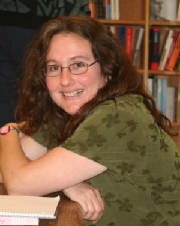 Professor Naomi Seidman
Professor Naomi Seidman
|
Jewtopias!
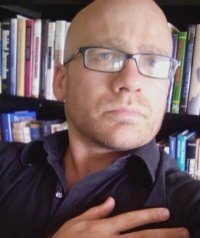
Professor Elliot Ratzman
|
Seinfeld–A Secular Jewish Icon
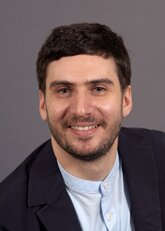
Professor Ted Merwin
|
Jewish Folklore as a Venue for Secular Jewish Culture
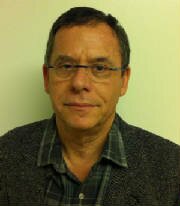
Professor Eli Yassif
|
|
Professor Caryn Aviv
|
|
University for a Day on Jewish Secularism
AND
A Conversation on Jewish Secularism
On Saturday, March 12, the Posen Foundation co-sponsored two innovative public programs: University for a Day on Jewish Secularism and A Conversation on Jewish Secularism. Both events took place at The New School in New York City, which collaborated with the Posen Foundation and the Center for Cultural Judaism to make both programs a great success.
Attended by nearly 200 participants, University for a Day brought together a select group of scholars from throughout the U.S. and Israel to offer a day-long series of mini-courses on Jewish Secularism. Dr. David Biale, recipient of the 2011 UC–Davis Prize for Undergraduate Teaching and Scholarly Achievement, gave the keynote address: Not in the Heavens: The Premodern Roots of Jewish Secularism. Following Dr. Biale was Dr. Naomi Seidman (Graduate Theological Union), who discussed Secularization and Sexuality, and Elliot Ratzman (Temple University), who presented Jewtopias! The Jewish Romance with Communism, Zionism, and America. Other mini-courses included Seinfeld–A Secular Jewish Icon, Jewish Folklore as a Venue for Jewish Culture, Global Secular Jewish Societies, and Freud, Psychoanalysis, and the Secular Subject.
View the full program.
The day-long program was followed by a highly successful evening event, A Conversation on Jewish Secularism. The evening program was moderated by NPR’s Robert Siegel and featured Rebecca Newberger Goldstein, author of Betraying Spinoza and the recently published 36 Arguments for the Existence of God: A Work of Fiction, and Dr. David Biale, author of Not in the Heavens: The Tradition of Jewish Secular Thought. The three participated in a highly engaging discussion that touched on the intellectual roots of Jewish secularism (including thinkers such as Benedict Spinoza), modern, secular Jewish identity, and the role of Jewish religion in a secular world. A Conversation on Jewish Secularism attracted more than 250 attendees, who were invited to participate in a Q & A session following the conversation.
|
|
Audio
Haynt–The Jewish Voice in Your Home
January 20, 2011
Associate Professor Joanna Nalewajko-Kulikov discussed the role and impact of the Zionist daily Haynt at YIVO on Thursday January 20, 2011. From its start in 1908 until its last issue in 1939, Haynt was one of two leading Yiddish dailies in pre-1939 Eastern Europe. It was distinguished by its focus on current news, both within the Jewish community and the larger European political landscape. As Nalewajko-Kulikov explained, Haynt became a "breeding ground for Jewish intellectuals in interwar Warsaw.”
|
|
Lenin’s Photographer
In January, 1918, Moises Nappelbaum trained his lens on Lenin, and helped create an iconic image. Nappelbaum was an accomplished Soviet Jewish photographer at a time when photography, world events, and Jewish history converged in remarkable, and sometimes startling, new ways.
Through Soviet Jewish Eyes: Photography, War, and the Holocaust, a new book by David Shneer (Director of Jewish Studies at U. of Colorado-Boulder), examines the role of Soviet Jewish photographers in documenting Soviet victory, Nazi atrocity, and Jewish tragedy. In a recent interview with Tablet Magazine, Shneer discussed the role of “the Jewish eye” in photography, and posed the question: “What is a Jewish photograph?” Listen to the interview.
|
|
Interview With David Biale And KQED (San Francisco Public Radio) Host Michael Krasny
February 2, 2011
In his new book Not in the Heavens, author David Biale chronicles the development of Jewish secular culture which, he claims, began with the Bible and continues to this day. Biale joins KQED's Michael Krasny to discuss his exploration of the roots of modern Jewish secularism within the religious tradition it rejects, and what the role of Jewish secularism is today. Listen to the interview.
|
| |
|
Globetrotters
Jews may be the quintessential diasporic people, scattered and diverse. Throughout history, Jews have integrated, assimilated, and participated in non-Jewish cultures around the globe. How diverse, then, is global Jewish life?
Scattered Among the Nations, an exhibition of photographs documenting global Jewish life, opened yesterday at Temple Sinai of Oakland, CA. A collaborative project of Berkeley’s Lehrhaus Judaica and Building Jewish Bridges, according to Lehrhaus the exhibition “challenges stereotypes of the Jewish people...by demonstrating the surprising racial, ethnic, and cultural diversity of the world Jewish community.”
In 2006, chairman, president, and founder of Scattered Among the Nations Bryan Schwartz spoke with WNYC's Leonard Lopate about his work at travels with Jewish communities of the world.
|

|
 |
Video
An Enlightened Age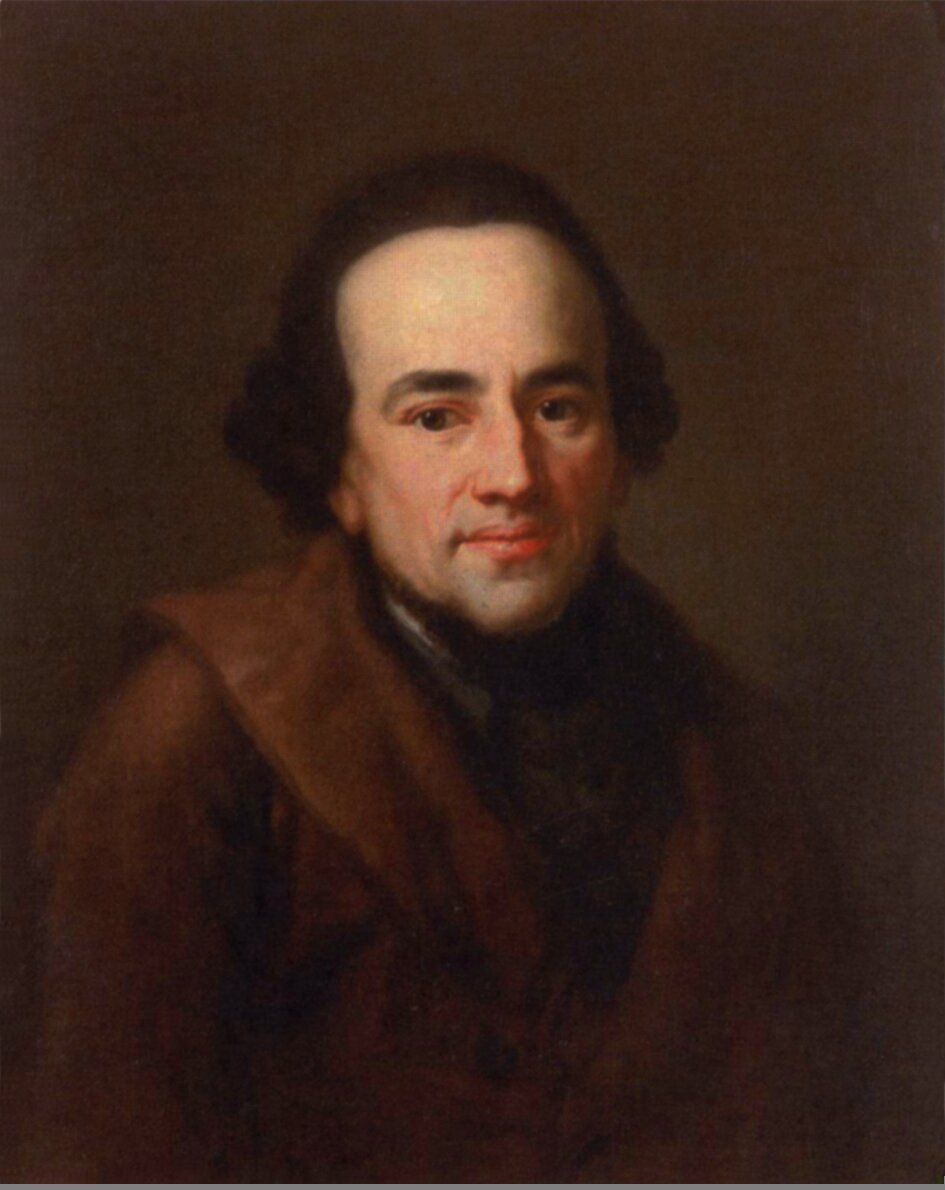
September 18, 2011
In 1783, Moses Mendelssohn published Jerusalem. Jewry hasn’t been the same, since.
A crucial figure in the Haskalah, or Jewish Enlightenment, Mendelssohn’s book initiated a conversation about church, state, and Judaism that continues to be a source of contention and inspiration for Jews today--secular and religious, alike. A Continuing Conversation: Moses Mendelssohn and the Enlightenment, a symposium hosted by the Center for Jewish History in New York, will gather a group of internationally renowned scholars of Jewish Studies to discuss and debate Mendelssohn’s legacy. According to the CJH, the symposium will “highlight recent scholarship related to contemporary issues in religion, secularism, politics, culture, language and identity.”
|
|
Secular Jewish Culture/ Radical Poetic Practice
September 21, 2004
“What are the innovations and inventions of American Jewish poets over the past century?”
This is one of the leading questions that six writers and scholars set out to explore at “Secular Jewish Culture/Radical Poetic Practice,” held at the Center for Jewish History in the summer of 2004. 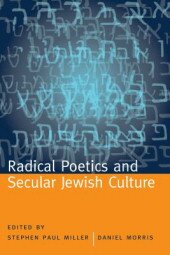
The symposium that would become “Secular Jewish Culture” began with an invitation. In 2003, the American Jewish Historical Society asked Stephen Paul Miller—poet and professor of English at St. John’s University—to host a poetry event. Miller sought a dynamic topic—one that would generate discussion. When Miller posed the problem of coming up with a rich, meaningful theme to Charles Bernstein—a renowned poet and the Regan Professor of English and Comparative Literature at University of Pennsylvania—Bernstein proposed an event that would stress the “secular.” He seemed to have seen a need and was responding to it. Conservative and fundamentalist coalitions were dominating political and religious discourse; Bernstein’s event was meant to serve as an alternative. The result was “Secular Jewish Culture/ Radical Poetic Practice.”
|
|
The Art of Kvetch: Jewish Humor as Secularism
April 27, 2011
Everyone, it seems, can enjoy a good kvetch. How else to explain the success of kvetchologist Michael Wex's unlikely bestseller, Born to Kvetch, or for that matter, the serial kvetchings of Jewish comics 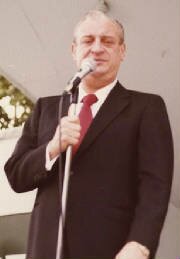 from Jerry Seinfeld to Rodney "I don't get no respect" Dangerfield? from Jerry Seinfeld to Rodney "I don't get no respect" Dangerfield?
Well, now we may have some answers. The Art of Kvetch: Jewish Humor as Secularism was hosted by The New School's Jewish Cultural Studies program, and took a close look at this secular Jewish art form. Among the panelists, who deconstructed the kvetch and no doubt brought his own punchlines: Michael Wex himself.
|
|
Freud, Secularism, and Jewish History
October 25, 2010
From the Id to the unconscious to “freudian slips,” Freud and psychoanalysis have exerted a pervasive influence on modern life. And as a staunchly secular Jew, Freud remains a  highly significant figure in the history of Jewish secularism. On October 25, The New School’s Jewish Cultural Studies program hosted “Freud, Secularism, and Jewish History,”a public panel where scholars discussed Freud’s legacy as both a modern thinker and a modern Jew. Key points of interest included Freud’s contributions to secularism, his impact on secular Jewish history, and his role as a secular Jewish thinker. highly significant figure in the history of Jewish secularism. On October 25, The New School’s Jewish Cultural Studies program hosted “Freud, Secularism, and Jewish History,”a public panel where scholars discussed Freud’s legacy as both a modern thinker and a modern Jew. Key points of interest included Freud’s contributions to secularism, his impact on secular Jewish history, and his role as a secular Jewish thinker.
|
Conference on the 150th Anniversary of the Birth of Simon Dubnow
October 24, 2010
Simon Dubnow's contributions as a secular Jewish intellectual, historian of Eastern European Jewry, and founding member of YIVO were explored during YIVO's Simon Dubnow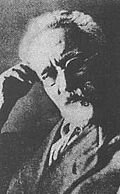 conference, marking the 150th anniversary of his birth. What is Dubnow's legacy today? Dubnow was "a representative of his time," according to Dubnow’s biographer Professor Robert Seltzer, who gave the keynote address at the conference. Moreover, Dubnow was one of the founders of the academic discipline of Jewish history and one of the great theorists of Jewish culture. Born into a religious household at the onset of the European Enlightenment, Dubnow came to espouse what he called the "New Judaism"-a concept of a Jewish identity and Jewish culture based on secular Jewish nationalism, rather than religious observance. conference, marking the 150th anniversary of his birth. What is Dubnow's legacy today? Dubnow was "a representative of his time," according to Dubnow’s biographer Professor Robert Seltzer, who gave the keynote address at the conference. Moreover, Dubnow was one of the founders of the academic discipline of Jewish history and one of the great theorists of Jewish culture. Born into a religious household at the onset of the European Enlightenment, Dubnow came to espouse what he called the "New Judaism"-a concept of a Jewish identity and Jewish culture based on secular Jewish nationalism, rather than religious observance.
This event was co-sponsored by The Posen Foundation and Hunter College.
|
|
"Arguing the World"
October 14, 2010
They were four secular Jews with New York roots and New York attitudes. They were idealists with clashing ideals. They were thinkers, but more than that, they were talkers. "I couldn't imagine the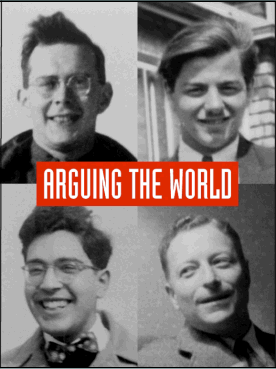 decibel level these guys would reach," says former democratic activist Tom Hayden in the documentary Arguing the World, about the New York Intellectuals Irving Howe, Daniel Bell, Nathan Glazer, and Irving Kristol. decibel level these guys would reach," says former democratic activist Tom Hayden in the documentary Arguing the World, about the New York Intellectuals Irving Howe, Daniel Bell, Nathan Glazer, and Irving Kristol.
As young men, they traded religion for the capital-letter -isms of their era: Marxism, Stalinism, anti-Stalinism, and, later, Neo-Conservatism. As explored in the film and panel discussion to follow, this group of four "argued about everything,” and left an indelible impact on 20th century American politics by viewing it “through the eyes of 1st generation immigrant Jews.”
|
| |

|

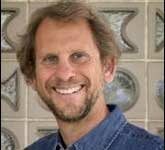



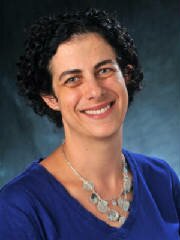

 from Jerry Seinfeld to Rodney "I don't get no respect" Dangerfield?
from Jerry Seinfeld to Rodney "I don't get no respect" Dangerfield? highly significant figure in the history of Jewish secularism. On October 25, The New School’s Jewish Cultural Studies program hosted “Freud, Secularism, and Jewish History,”a public panel where scholars discussed Freud’s legacy as both a modern thinker and a modern Jew. Key points of interest included Freud’s contributions to secularism, his impact on secular Jewish history, and his role as a secular Jewish thinker.
highly significant figure in the history of Jewish secularism. On October 25, The New School’s Jewish Cultural Studies program hosted “Freud, Secularism, and Jewish History,”a public panel where scholars discussed Freud’s legacy as both a modern thinker and a modern Jew. Key points of interest included Freud’s contributions to secularism, his impact on secular Jewish history, and his role as a secular Jewish thinker. conference, marking the 150th anniversary of his birth. What is Dubnow's legacy today? Dubnow was "a representative of his time," according to Dubnow’s biographer Professor Robert Seltzer, who gave the keynote address at the conference. Moreover, Dubnow was one of the founders of the academic discipline of Jewish history and one of the great theorists of Jewish culture. Born into a religious household at the onset of the European Enlightenment, Dubnow came to espouse what he called the "New Judaism"-a concept of a Jewish identity and Jewish culture based on secular Jewish nationalism, rather than religious observance.
conference, marking the 150th anniversary of his birth. What is Dubnow's legacy today? Dubnow was "a representative of his time," according to Dubnow’s biographer Professor Robert Seltzer, who gave the keynote address at the conference. Moreover, Dubnow was one of the founders of the academic discipline of Jewish history and one of the great theorists of Jewish culture. Born into a religious household at the onset of the European Enlightenment, Dubnow came to espouse what he called the "New Judaism"-a concept of a Jewish identity and Jewish culture based on secular Jewish nationalism, rather than religious observance.
 decibel level these guys would reach," says former democratic activist Tom Hayden in the documentary Arguing the World, about the New York Intellectuals Irving Howe, Daniel Bell, Nathan Glazer, and Irving Kristol.
decibel level these guys would reach," says former democratic activist Tom Hayden in the documentary Arguing the World, about the New York Intellectuals Irving Howe, Daniel Bell, Nathan Glazer, and Irving Kristol.

